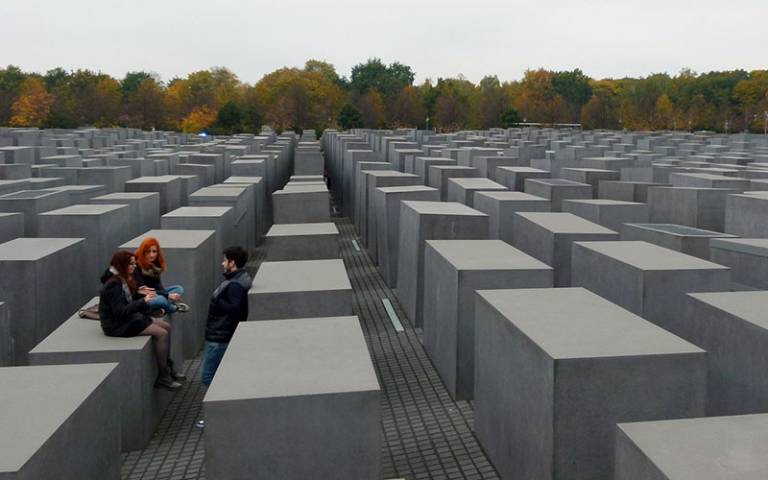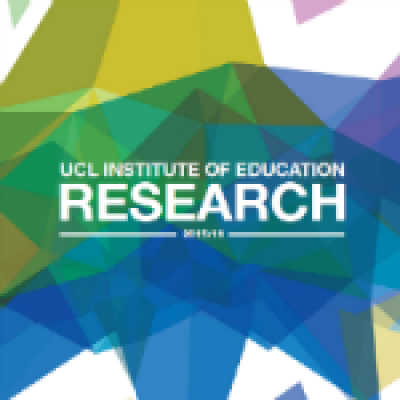Teaching the Holocaust: in conversation with UCL Centre for Holocaust Education staff and supporters
30 January 2018
UCL Institute of Education's (IOE) unique Centre for Holocaust Education supports teachers to deepen students' understanding about the Holocaust.

To mark Holocaust Memorial Day, Ruth-Anne Lenga, Head of Academic Programmes at the UCL Centre for Holocaust Education, and Sir Trevor Pears, Executive Chair of Pears Foundation, a major supporter of the Centre, discuss the importance of meaningful education about this complex and painful subject.
The UCL Centre for Holocaust Education is the only centre in the world to combine classroom practice with academic scholarship and empirical research about the Holocaust. It undertook the first national investigation into teachers' practices and perspectives, followed by equally far-reaching research into what students know and understand about the Holocaust. Its wide-ranging professional development and teacher support programmes were established in response.
The Centre was established in 2008 in partnership with the Pears Foundation and the Department for Education. Sir Trevor highlights the importance of the subject within the classroom:
"The Holocaust is one of history's darkest periods, and is uniquely subject to misunderstanding and misuse. It's an extraordinarily important subject in its own right and for what it can and must teach us for the future."
Ruth-Anne Lenga comments:
"Students in schools across the country grasp the importance of the Holocaust but meaningful learning is often hindered by superficial understandings and embedded myths which go unchallenged in many classrooms. Some of the text books in common use only serve to exacerbate the problem with fundamental omissions and overly simplistic explanations of human motivations, actions and choices.
"One of our most important early findings was that teaching largely focuses on the perpetrator's narrative - what they did, when and how - with only scant attention given to pre-war Jewish lives or how the events unfolded from the victims' perspectives. Jews' responses to their suffering, their resilience and the desperate dilemmas they confronted are not sufficiently explored in enough classes, inevitably making it hard for students to identify fully with the human tragedy of the Holocaust and to consider what it means and represents for us today. Addressing this imbalance is a critical goal for our team."
More than 6,000 teachers have now participated in the Centre's programmes and courses, reaching over one million pupils. The centre also undertook the first ever national study of children's understanding of the Holocaust.
Ruth-Anne Lenga explains more about using the research: "The courses disseminate research findings, share guiding principles for practice, and model tried and tested lessons to demonstrate how teachers can challenge their young students to engage with critical aspects of the Holocaust and struggle with its difficult questions rather than avoid them.
"Young people report that meeting survivors has a powerful effect on their ability to grasp the reality of the Holocaust. But time is passing and as the number of survivors decrease we have an even greater responsibility to empower the teaching community with educational strategies that ensure the warnings of the Holocaust are firmly understood in ways that encourage students to conceive of and work for a more humane future."
Sir Trevor concludes: "What UCL is doing is unique: leading the first large scale research into the challenges of teaching about the Holocaust and developing support and development for teachers at all stages of their careers. It means that both educators and their students can genuinely engage with this hugely complex topic, and really try to grapple with the reasons and motivations behind genocide.
"Being a socially active citizen is important. Partnering with UCL to create the Centre has opened up tremendous opportunities to work with brilliant researchers and educators to shape a better education for young people and equip them to think clearly and critically about massive issues like hatred, prejudice and how different cultures understand and relate to each other."
Media contact
Rowan Walker, UCL Media Relations
rowan.walker@ucl.ac.uk
+44 (0)20 3108 8516
 Close
Close


